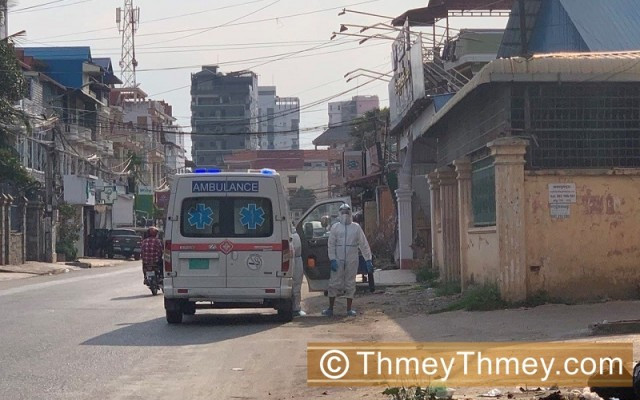Economic Growth Fails to Meet Predictions

- By Teng Yalirozy
- November 22, 2023 7:10 PM
PHNOM PENH – Economic growth is forecast to fall to 5.4 percent for the year, down from the 5.5 percent predicted in May, the World Bank says.
The bank blames the decline in domestic and international demand and urges the country to address economic challenges for short and medium-term growth.
The economy is predicted to be hit by inflation and overlapping pandemic shocks and Russia’s invasion of Ukraine, according to a “From Recovery to Reform” update on Cambodia's economy in November.
Hence, the economy is projected to grow more slowly than the initial projection, reaching 5.8 percent in 2024 and 6.1 percent in 2025. The rate of poverty reduction is expected to be high but unlikely to reach the pre-pandemic level.
“This year’s economic activity has been slower than previously anticipated due to emerging structural bottlenecks and continued external headwinds,” the report says.
Shortcomings in infrastructure development, such as transportation and logistics performance, hurt the economy as the country faced high costs and low reliability of energy supplies.
Although more international tourists seem to flow in, tourism activity remains slow, while exports have weakened. In the first eight months of 2023, goods exports plummeted by two percent, the report said. This affected the labor market.
“After a strong recovery in 2022, government revenue collection has slowed this year,” it says.
World Bank country manager Maryam Salim said Cambodia must support the private sector as a growth engine by enhancing public sector performance to sustain growth.
“Maintaining financial stability is also a priority and more efforts are needed to restore fiscal space,” she said.
The report said, however, significant risks and challenges could affect this outlook, such as weak global demand, tighter global financial conditions, and oil and food price shocks hitting domestic consumption.
“Domestically, rising household debt and the continued concentration of domestic credit in the real estate sector remain key risks to financial stability,” it says.
To address the issue, the bank said structural transformation should be accelerated to transition to sustainable growth while the business environment should be improved to boost productivity.
Upgrading infrastructure was crucial for productivity and international competitiveness. The efficiency and cost of cross-border trade were affected significantly by gaps in regional connectivity and needed urgent attention.
Addressing skill shortages, safeguarding financial stability and improving public sector performance were key to tackling economic challenges.















